Johnny Depp Honors Ozzy Osbourne: A Legendary Tribute That Shook the World
In a story that felt both breathtaking and profoundly moving, Johnny Depp recently stunned fans during Alice Cooper’s July 25 concert at London’s O2 Arena. Stepping onto the stage without warning, Depp performed Black Sabbath’s legendary hit “Paranoid” as a tribute to the late Ozzy Osbourne, who had passed away just three days prior at the age of 76. It wasn’t just a musical performance; it was a monumental, emotional moment that encapsulated the extraordinary life of a man who had defined heavy metal and influenced countless generations across the globe.
The crowd erupted into cheers as Depp flawlessly handled the bass guitar, merging seamlessly with Cooper and his band. The excitement in the arena was electric, a historic convergence of film and rock that honored a global icon. Cooper, donning an Ozzy Osbourne fan T-shirt, led the audience in chanting, “Here’s for Ozzy!”, creating a moment of unity and reverence that reverberated far beyond the stage.
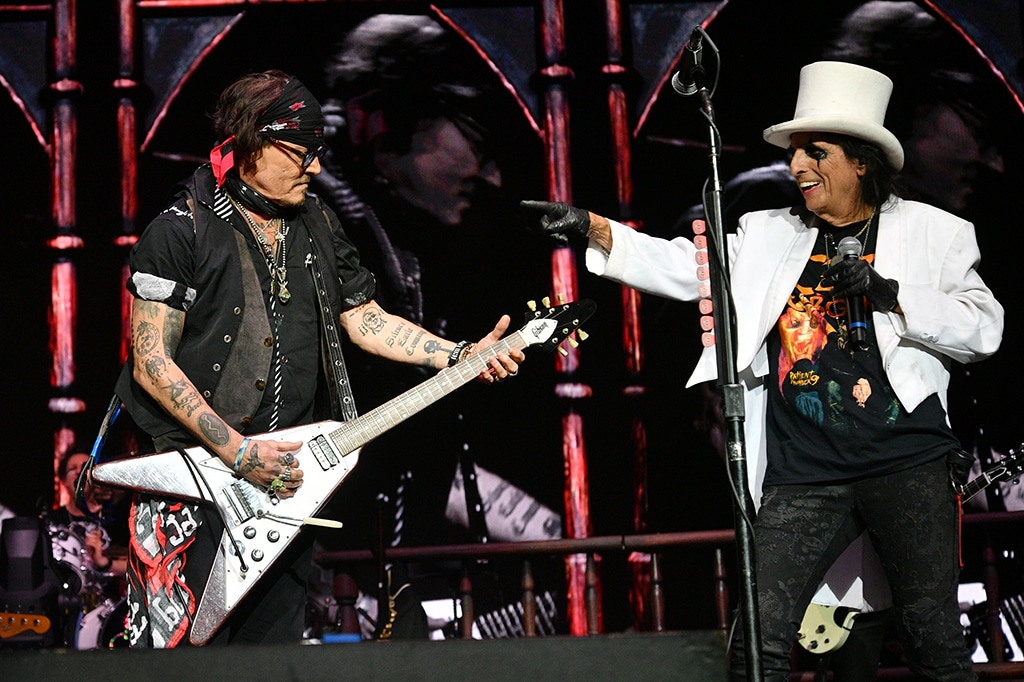
Jim Dyson/Getty Images
Earlier that day, Alice Cooper reflected on his decades-long friendship with Ozzy. He recounted touring experiences, shared stage moments, and the highs and lows of their personal journeys in heavy metal. Cooper admitted the initial shock of hearing Ozzy’s death and the profound sorrow it brought. This tribute, he explained, was about more than performance; it was an acknowledgment of a lifelong impact that Ozzy had on friends, peers, and fans worldwide.
Young artists also expressed their grief and admiration. Yungblud, a 27-year-old British musician, vowed to perform Black Sabbath’s “Changes” every night for the rest of his career in Ozzy’s honor, highlighting the personal and artistic influence the legend had on modern performers. Similarly, Kelly Osbourne, Ozzy’s daughter, shared a heartfelt Instagram post describing the loss of her father as losing her best friend, underscoring the deep human and emotional dimensions of his life beyond the stage.
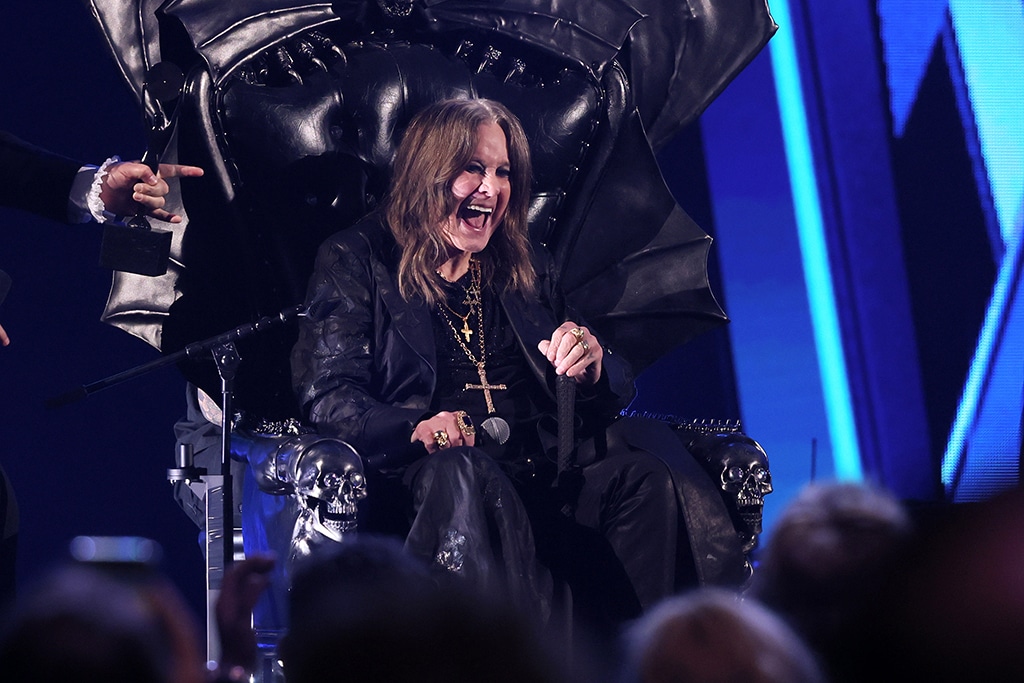
Dia Dipasupil/Getty Images for The Rock and Roll Hall of Fame
Early Life and the Birth of a Legend
John Michael Osbourne was born in Birmingham, England, in 1948, facing early challenges including dyslexia, teasing, and social alienation. Yet music became his sanctuary. It was the key that unlocked his extraordinary potential, eventually leading him to co-found Black Sabbath alongside Geezer Butler, Bill Ward, and Tony Iommi in the late 1960s. Initially called Earth, the band would become the architects of heavy metal, channeling societal darkness, personal struggles, and raw emotion into a revolutionary sound.
The band’s self-titled debut album in 1970, along with follow-ups like “Paranoid” and “Master of Reality,” showcased Ozzy’s unique voice, ability to convey emotion, and unparalleled stage presence. The combination of distorted guitar riffs, dark lyrics, and theatrical flair defined an entire genre, influencing generations of musicians worldwide. Ozzy’s performances were not just concerts—they were rituals of energy, rebellion, and catharsis, where fans felt truly alive.
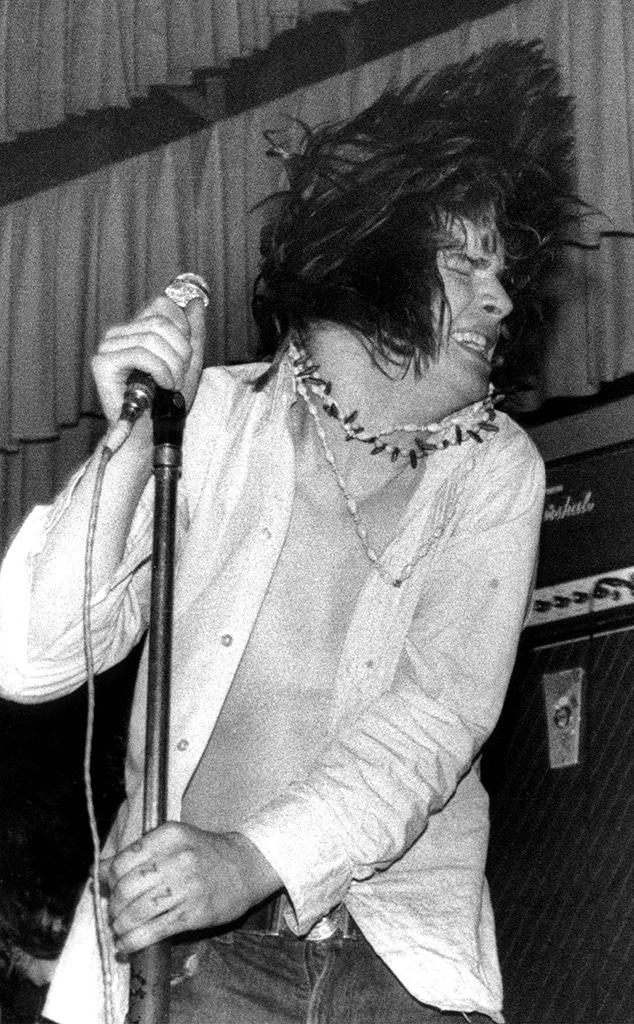
Ellen Poppinga – K & K / Contributor / GETTY IMAGES
Personal Life: Chaos, Love, and Reinvention
While Ozzy’s career soared, his personal life was a rollercoaster. He married Thelma Riley in 1971, and together they had children Jessica, Louis, and Elliot Kingsley. The pressures of fame, touring, and early rock lifestyle challenges created tension, leading to battles with addiction and public scrutiny. Yet these struggles became intertwined with his artistry, shaping the raw, authentic energy that made him legendary.
Ozzy’s marriage to Sharon Osbourne in 1982 marked a turning point. Sharon’s role as wife, manager, and confidante provided stability amid chaos. She guided him through addiction, health issues, and career reinvention, allowing him to flourish as a solo artist while maintaining a strong family bond. Together, they raised children Aimee, Kelly, and Jack Osbourne, who themselves became cultural figures, continuing Ozzy’s influence in new ways.
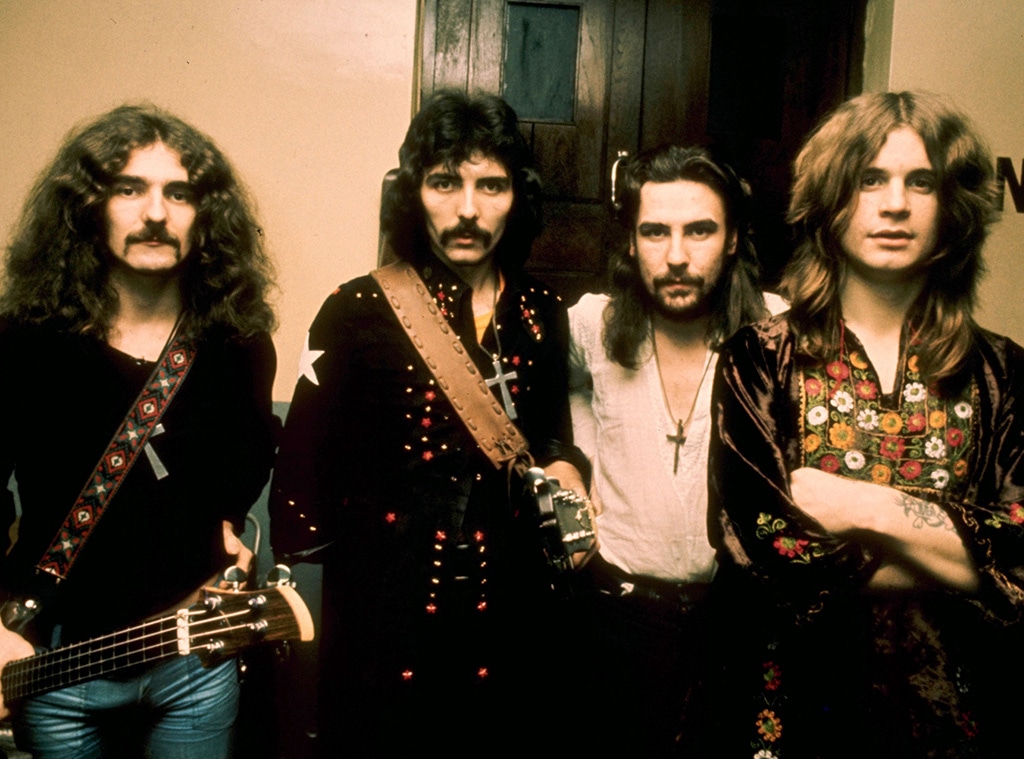
Chris Walter/WireImage
Solo Career: The Prince of Darkness Emerges
After leaving Black Sabbath, Ozzy launched a remarkably successful solo career, producing albums like “Blizzard of Ozz” (1980) and “Diary of a Madman” (1981). Hits such as “Crazy Train” and “Mr. Crowley” combined virtuoso guitar, powerful lyrics, and emotional intensity, establishing him as the Prince of Darkness.
The 1980s and 1990s saw Ozzy navigate controversy and public fascination. From the infamous bat-biting incident to highly publicized battles with addiction, he continued to deliver performances that were electrifying and unforgettable. His ability to transform personal chaos into art became a hallmark of his career, illustrating resilience, ingenuity, and fearless self-expression.
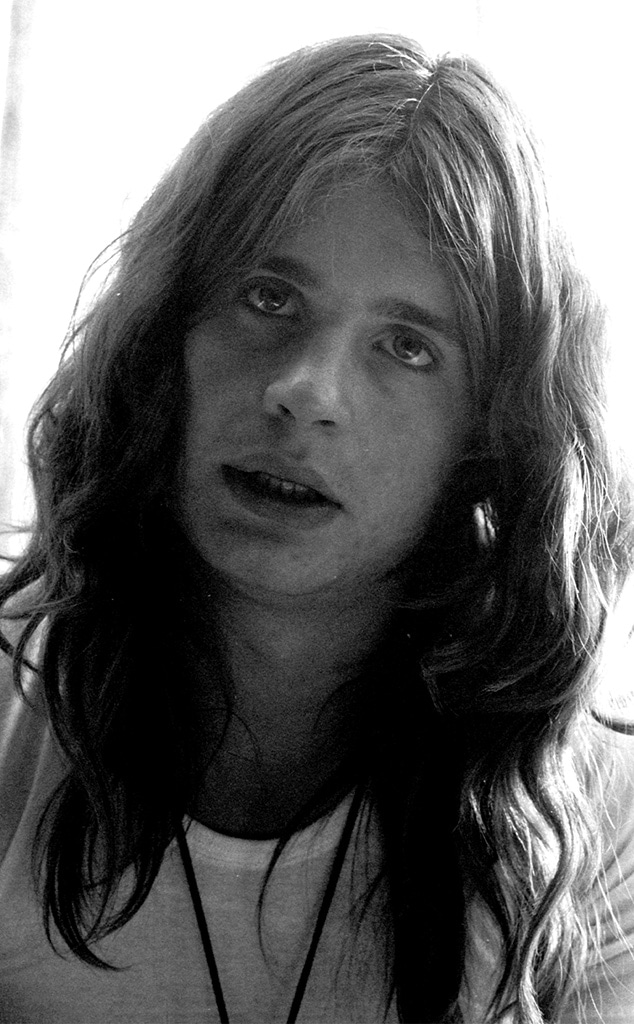
Michael Putland / Contributor / GETTY IMAGES
Global Reaction and Lasting Influence
Ozzy’s death created a worldwide wave of mourning and celebration. Fans from all continents shared memories, organized candlelight vigils, and celebrated his legacy through music. From Japan to Brazil, tributes poured in, demonstrating his universal appeal. His songs, brimming with emotion and rebellion, united people across language and culture, proving that true artistry transcends borders.
Johnny Depp’s tribute exemplified this global connection. By performing “Paranoid”, Depp symbolically represented the countless artists and fans whose lives had been touched by Ozzy’s music. Media outlets worldwide covered the moment, highlighting the shared grief and admiration of millions.
Ozzy’s influence extends beyond music. His fashion, stage persona, and media presence inspired countless artists, encouraging individuality and self-expression. Reality shows like “The Osbournes” introduced him to new generations, highlighting his humor, relatability, and humanity. Musicians across genres—from heavy metal to punk—cite Ozzy as a major influence, proving his impact is both profound and timeless.
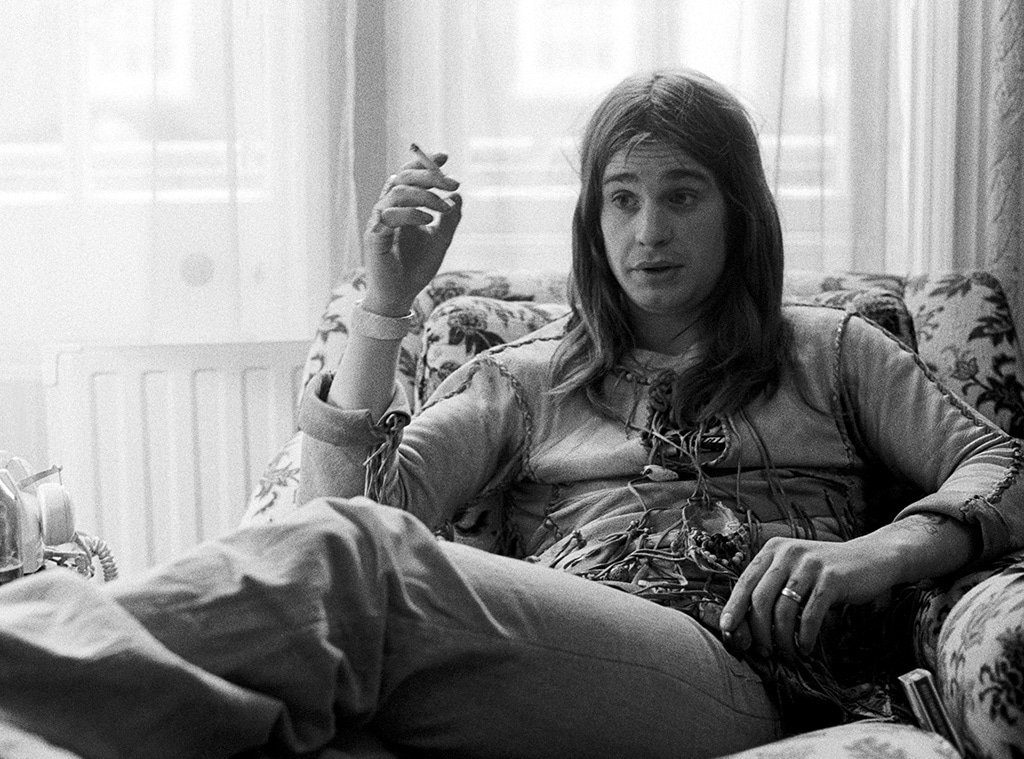
Michael Putland/Getty Image
Cultural Legacy and the Emotional Farewell
Ozzy’s life exemplifies the transformative power of art. He turned personal adversity into collective experience, creating songs that became emotional touchstones for fans worldwide. His performances, recordings, and public persona continue to inspire, reminding audiences that imperfection, struggle, and individuality are sources of strength, not weakness.
The tribute by Johnny Depp, fan performances, and global memorials show that Ozzy’s influence is alive and enduring. His music continues to inspire, connect, and move audiences, ensuring his spirit remains a guiding force. He is not just remembered; he is experienced in every chord, lyric, and tribute, resonating across generations.
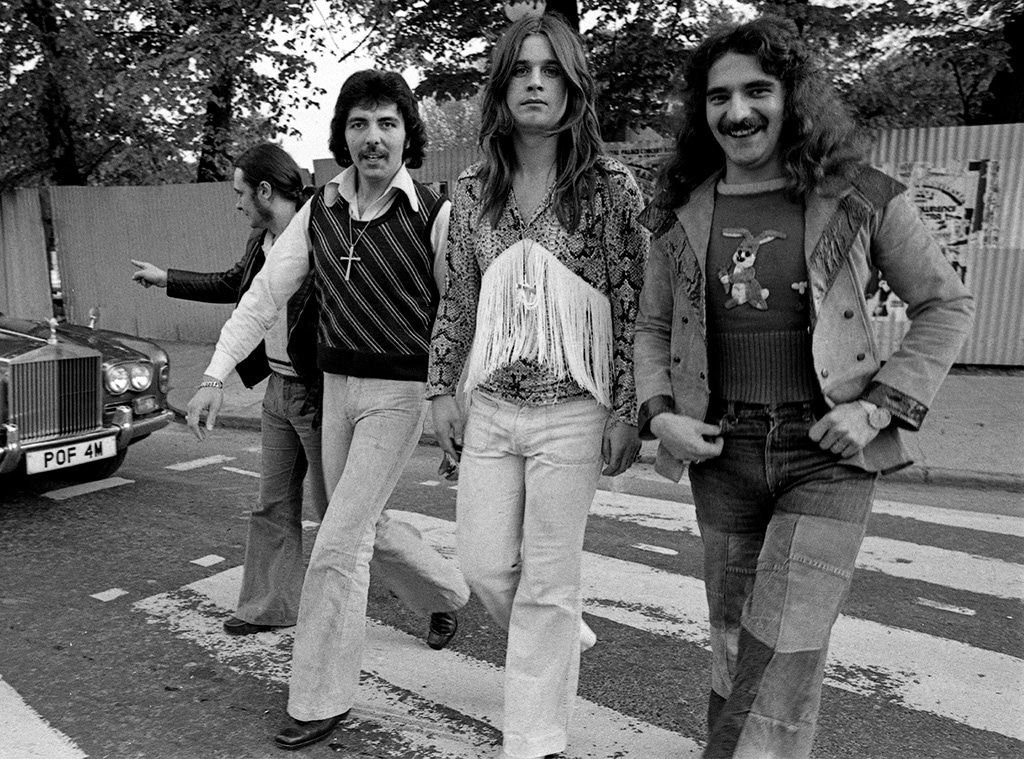
Cleopatra Records / Contributor / GETTY IMAGES
Ozzy’s life was a symphony of contrasts—chaos and brilliance, darkness and light, struggle and triumph. He was a rock icon, a cultural pioneer, and a deeply human figure whose story resonates universally. Through his artistry, personality, and enduring presence, Ozzy Osbourne continues to live, not only in recordings but in the hearts and minds of millions.
As the curtain closes on his earthly journey, the echoes of Ozzy Osbourne reverberate eternally. In every riff, every chant, every note, and every tribute, the Prince of Darkness remains immortal, a timeless symbol of resilience, brilliance, and the unifying power of music.
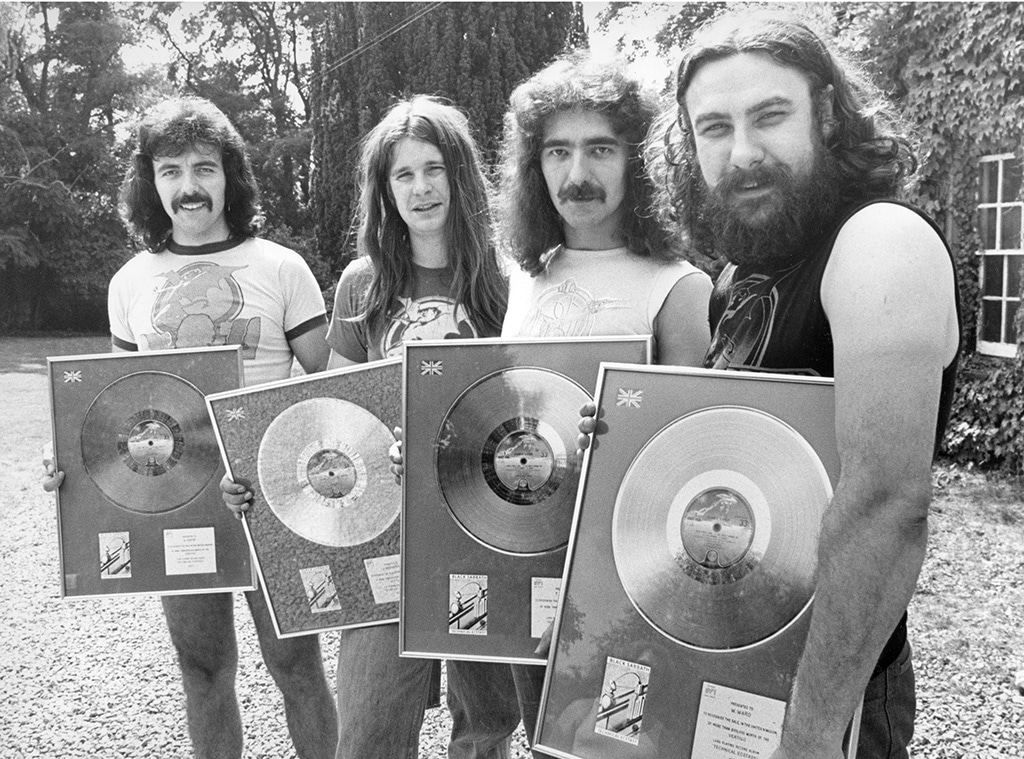
Mirrorpix / Contributor / GETTY IMAGES
As we traverse the echoes of sound, memory, and imagination, some moments resonate beyond mere documentation. The details within this account exist in the interplay of perception, admiration, and the collective heartbeat of those who have witnessed or felt the essence of these events. Readers are invited to experience the narrative fully, as it unfolds in the shared consciousness of artistry and legacy.
News
Un padre regresa del ejército y descubre que su hijastra ha sido obligada por su madrastra a hacer las tareas del hogar hasta sangrar, y el final deja horrorizada a la madrastra.
Después de dos años lejos de casa, tras días abrasadores y noches frías en el campo de batalla, el Capitán…
Una niña de 12 años hambrienta pidió tocar el piano a cambio de comida, y lo que sucedió después dejó a todos los millonarios en la sala asombrados.
Una niña de doce años hambrienta preguntó: “¿Puedo tocar el piano a cambio de algo de comida?” Lo que sucedió…
Se rieron de ella por almorzar con el conserje pobre, pero luego descubrieron que él era el director ejecutivo de la empresa.
Se rieron de ella por compartir el almuerzo con el conserje pobre, hasta que descubrieron que él era el director…
La multimillonaria soltera se arrodilló para pedirle matrimonio a un hombre sin hogar, pero lo que él exigió dejó a todos conmocionados.
“Por favor, cásate conmigo”, suplicó una madre soltera multimillonaria a un hombre sin hogar. Lo que él pidió a cambio…
Nadie se atrevía a salvar al hijo del millonario, hasta que apareció una madre pobre sosteniendo a su bebé y una acción temeraria hizo llorar a todos.
Nadie se atrevía a salvar al hijo del millonario, hasta que una madre negra y pobre que sostenía a su…
Un maestro escuchó el aterrador susurro de un niño y los descubrimientos de la policía dejaron a todos sorprendidos.
Un Maestro Escuchó a un Niño Susurrar “Esta Noche Me Voy a Escapar Antes de Que Él Me Encuentre” y…
End of content
No more pages to load












